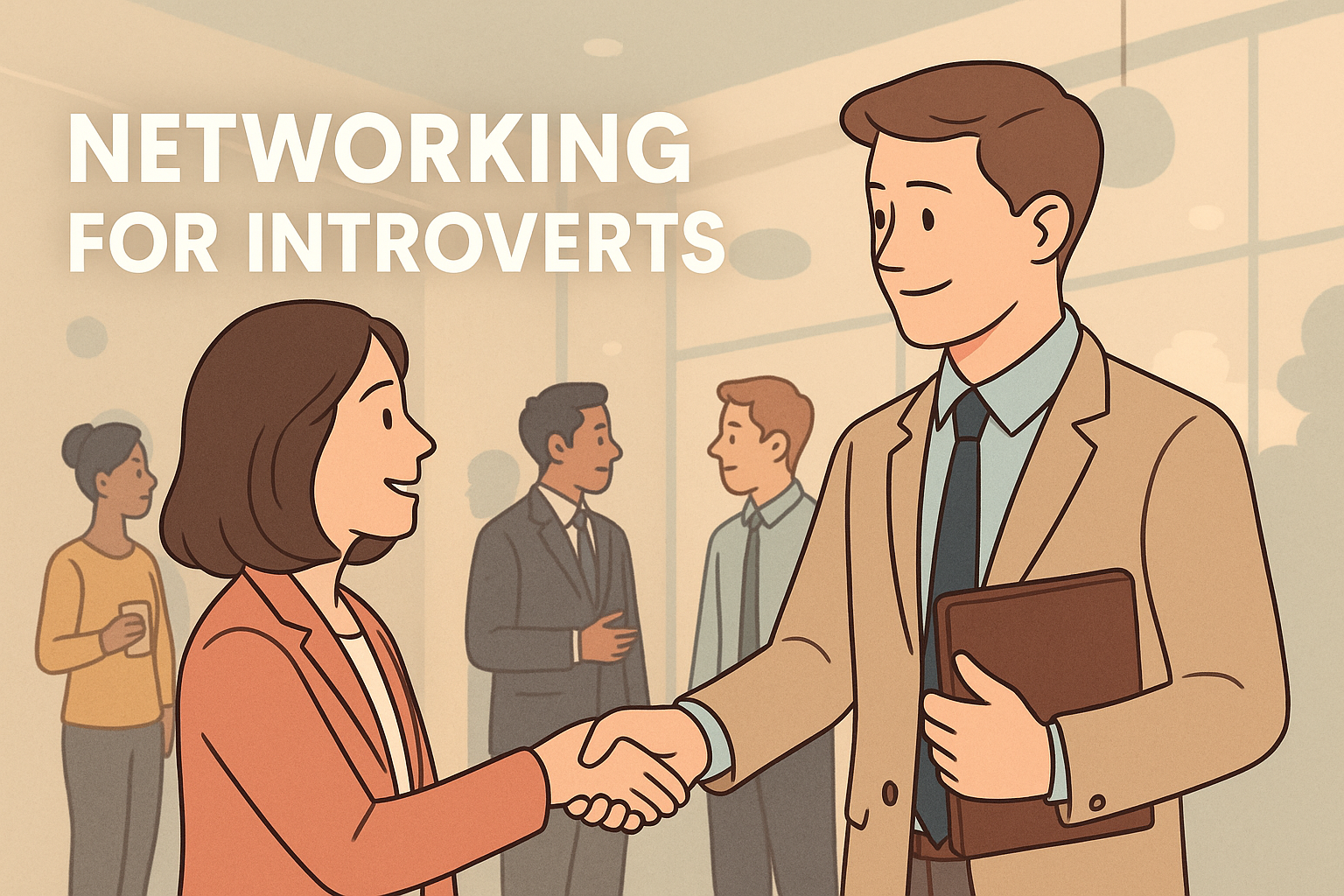Networking is often portrayed as a high-energy sport designed for extroverts—but the truth is that introverts can be some of the most effective relationship builders in any industry. With thoughtful preparation, strategic communication, and authentic engagement, introverts can turn networking from an exhausting chore into a career-advancing strength.
This guide breaks down actionable strategies to help introverts navigate professional networking with confidence and ease.
Why Introverts Excel at Networking—Even If It Doesn’t Feel Like It
While extroverts often shine in fast-paced social environments, introverts bring a different set of strengths:
- Deep listening skills
- Thoughtful engagement
- Meaningful one-on-one connections
- Strong preparation and follow-through
These qualities often translate into stronger, more loyal professional relationships—the true foundation of long-term career growth.
1. Focus on One-to-One Conversations
Large crowds can be draining, but networking doesn’t have to happen in groups. Introverts often thrive in deeper, more personal conversations.
Tips:
- Approach individuals standing alone.
- Ask open-ended questions to create natural conversations.
- Prioritize one strong, memorable interaction over dozens of short exchanges.
2. Prepare Talking Points in Advance
Preparation strengthens confidence and reduces anxiety.
Before an event:
- Review the attendee list, if available.
- Choose a few priority people to meet.
- Prepare a short personal introduction and several conversation starters.
3. Use Digital Networking to Your Advantage
Introverts often feel more comfortable expressing themselves in writing. Digital platforms provide a low-pressure way to build professional relationships.
Try:
- Commenting thoughtfully on industry posts.
- Joining professional online communities.
- Attending virtual networking sessions or webinars.
Digital networking can spark strong connections that transition offline naturally.
4. Schedule Recovery Time
Networking shouldn’t lead to burnout. Introverts recharge through solitude, so scheduling downtime is essential.
After events:
- Take a break.
- Reflect on conversations.
- Follow up while the interaction is still fresh.
This ensures networking remains a sustainable long-term habit.
5. Follow Up Thoughtfully
Where extroverts shine in spontaneous conversation, introverts excel in meaningful follow-through.
Examples:
- “I enjoyed our discussion on industry hiring trends—here’s the article I mentioned.”
- “Would you be open to a virtual coffee next week to continue our conversation?”
Thoughtful follow-ups often lead to professional relationships that last.
Key Takeaways
Networking as an introvert isn’t about transforming into an extrovert—it’s about leveraging your natural strengths. By focusing on meaningful conversations, preparing in advance, and using digital platforms strategically, introverts can build a powerful professional network without sacrificing comfort or energy. With small, consistent steps, networking becomes not only manageable, but highly effective for career growth.
FAQ
Is networking harder for introverts?
Not harder—just different. Introverts succeed through intentional interactions.
Can introverts be effective leaders through networking?
Yes. Their ability to build meaningful relationships is a leadership strength.
How can introverts avoid networking burnout?
Set boundaries, schedule downtime, and focus on quality connections.
What’s the best networking method for introverts?
One-on-one conversations and digital networking platforms.

